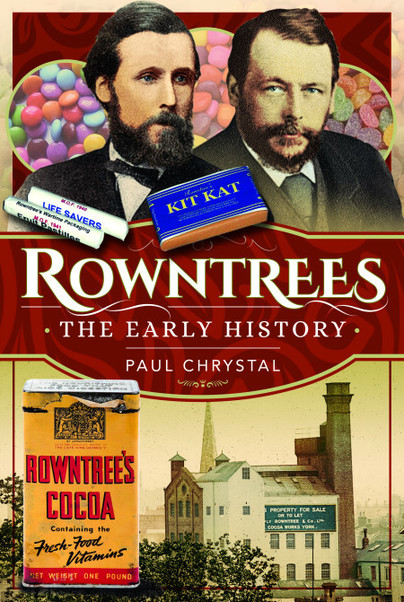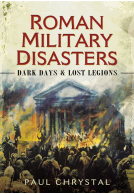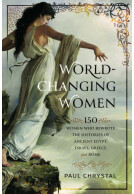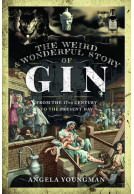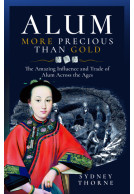Rowntree's (Hardback)
The Early History
Imprint: Pen & Sword History
Pages: 216
Illustrations: 32 black and white illustrations
ISBN: 9781526778895
Published: 7th May 2021
(click here for international delivery rates)
Need a currency converter? Check XE.com for live rates
| Other formats available - Buy the Hardback and get the eBook for £1.99! | Price |
|---|---|
| Rowntree's ePub (15.1 MB) Add to Basket | £6.99 |
The Rowntree family, especially Henry and the younger Joseph Rowntree are, along with the Fry’s, Cadbury’s, Mars and Terry’s, synonymous with the birth and growth of the chocolate industry in Britain. Between them, they were the chocolate industry in Britain.
This book charts the fascinating story behind the birth and development of the chocolate empire that was Rowntrees. Background information to this astonishing business comes by way of chapters on the early history of the Rowntrees, contemporary York, the relationship between Quakers and chocolate, and the Tuke family – without whom there would have been no Rowntrees, and no Kit Kats.
Henry, it is usually forgotten, was the founder of Rowntree’s – he made the momentous decision to sign the deal with the Tukes and we join him in those very early days of the fledgling company and watch how he helped it through some very dark, and sometimes humorous, times in what was then a very shambolic set up – cash strapped and making it up as the company lurched from crisis to crisis. Joseph, his elder brother, it was, who became the driving force to eventual global success, mixing his hectic business life with acts of compassion and a benevolent management model, all of which paved the way for decent wages, pensions, insurance and mutual respect in the workplace. Charity work extended beyond the factories to lift workers and others out of the slums of York to a life in a healthy model village, to provide a good social life, an extensive park, swimming pool and education for children and adults. More context is given with chapters on Joseph’s relentless industrial espionage, the advancements in chocolate production and 20th century rivals in the domestic and export markets, and mergers and acquisitions.
Rowntree’s role in the two world wars is also covered along with the struggle Joseph Rowntree had accepting the importance of advertising. Altogether this book gives two fascinating biographies of two exceptional and driven brothers who came together to form one of our greatest companies - producing some of our best loved confectionery products.
If one of your ancestors worked for Rowntree’s (or even one of their early competitors), attended one of the many schools with which the family were associated, or perhaps lived at New Earswick, the garden village financed by Joseph Rowntree’s generous donations, then this book is likely to be of interest. I suspect too that many family historians with other connections to York will also find it revealing for what it tells us about the city and its inhabitants.
Lost Cousins
Read the full review here
The latest title in P&S's series on the businesses that were "born" in the early decades of the industrial revolution looks at chocolate manufacturers the Rowntree family. The brand still appears on some sweets available today, such as fruit pastilles and fruit gums, for example. A fascinating look at a family business through the ages.
Books Monthly
Rowntree’s by Paul Chrystal – The Early History is such an interesting book. I knew only a few things about the history of chocolate and its York connections. The great things about this book is that, while talking a lot about the Rowntree family, with a focus on Henry and Joseph, the author also shares lots of interesting details on their competition: Fry’s, Cadbury’s, Mars, and Terry’s.
Coffee and Books
The chapters are quite small and he looked over all the aspects related to making chocolate in the 19th century and early 20th century. As they were Quakers, their religious views are described in detail too. The business was complex and it went through ups and downs. I like that corporate espionage is mentioned, especially as I wouldn’t have imagined something like this from people who were so moral when it came to their employees and clients.
Henry started the chocolate business, but it wouldn’t have survived without Joseph’s strength and determination. They were involved in charity work, but they did much more than that. Rowntree was one of the companies which developed those gorgeous villages for their workers, with beautiful houses that had gardens and good facilities, with greeneries outside and a park, and a school.
It was lovely to read about that. It was also lovely to read about the decent wages they were giving, on top of pensions, insurance, a doctor was hired to help with any medical needs the employees had. Furthermore, the company’s newspaper, something quite usual today but unknown at that time, offered an insight into what happened at the factory at that point and the author talks about this in sufficient detail.
Advertising was something the Rowntree was not keen to do, as they thought the quality of the product should have been sufficient enough, but as a topic is fascinating. Their views and involvement in the world wars is covered in the book too and, again, it is really interesting.
5/5 Stars
Read the full review here
Rating: 5 out of 5 stars
NetGalley, Jill G
Another hugely enjoyable book by Paul Chrystal! The History of sweets focussed on sweets and chocolates, but this book is specifically about the Rowntree family of York and how they went from being grocers to building a world famous chocolate empire. Interestingly, as a Quaker, Joseph Rowntree was very reluctant to advertise, something his competitors took advantage of, but he still succeeded. His idea of building a healthy model village to allow his workforce to inhabit better homes and to make education and leisure facilities available was a huge achievement. While the author can be quite fact heavy, it is all fascinating. The Family tree and timelines at the end are a really useful addition to clarify who's who. T
I enjoyed this book. I enjoyed learning more about Quakers and about the chocolate industry. I liked that the book looked at broader societal issues.
NetGalley, Stephen Goldberg
This is a solid and interesting book that is obviously written by an experienced writer of historical nonfiction. There is a massive amount of information and I learnt so much including about subjects I had not expected like chicory. The most interesting and important part for me was learning about the treatment of workers and worker relations, a fascinating part of the company's history and legacy. The book also explores the interesting intersection between running such a global company and having such a strong Quaker belief. I recommend this book for anone interested in this era of history and as a study of a complex man in Joseph Rowntree.
NetGalley, Lorna Vianna
Rating: 5 out of 5 stars
NetGalley, Louise Cannon
There is more to just eating confections than meets the eye! This is delectable book for history and confectionery lovers the world over!
This book, as much as it looks into the very being of Rowntrees and other companies, with them at the centre, it has more to it than meets the eye!
Thanks to Pen & Sword for accepting my request to review this wonderfully interesting book, which goes into little known corners of the confectionary world with its very interesting insights.
Full review
Rowntrees is about that famous family, especially Henry and Joseph who are synonymous with the birth of chocolate and in how it has grown.
It charts how Henry is the founder of Rowntrees and it details about his younger brother Joseph. It's one for the reader with a sweet-tooth and with an interest in how these companies came about, as it has other confectionery companies mentioned too. The pace is excellent for such a historical non-fiction book. It's interesting as Henry and Joseph Rowntree weren't just pioneering chocolate, but also in treating their staff well. It demonstrates their philanthropy and human interest and industrial relations, influenced by them being Quakers. The book has lots of context to it and mentions Lewis Fry and George Cadbury as well as The East India Tea Company and Nestle and how events influenced their ways of working and brought about meetings with Samuel Tuke, who is a key man.
There is plenty of history, even if you don't have a sweet-tooth as it isn't all chocolate related. It chronicles improvements to buildings and schooling and the contributions the Rowntrees made and how Joseph, especially, had been active in so many good causes.
There's a lot to learn about the Confectionery Industry from the Mid nineteenth century onwards. It's written in a manner as though studies have just been done and the information is unfolding for the first time. This style of writing brings some excitement to the book, especially when talking about what chocolate contains and how cacao can be consumed. The book shows differences in branding and advertising, which is a bit like an exclusive sneaky peak behind the scenes. It's interesting what is uncovered within the book, including competition and the concerns of industrial espionage.
As the book takes readers through the years, its pace builds up some excitement as chocolate emerges and becomes established in York, England. Although there are a lot of figures and dates, it adds to the context and doesn't detract from the rest of the facts, so even if figures aren't your thing, the rest of the book might well be and the pace is kept-up.
In the modern day, there seems to be more discoveries and it is exquisite that there are still old traditions that still survive today. It truly is all a delightful feast for the eyes and it may just make you want to buy some of Rowntree's confectionery as you read the rapid rise and rise of it all as it documents drinking chocolate, eating chocolate, sweets such as humbugs and pastilles, all of which still survive today.
The book nicely and respectfully concludes with The Last Will and Testament of Henry Isaac Rowntree and the heritage and suggests where to find further reading on the subject matters within the book. Beyond that, there are pictures of the Rowntrees and George Cadbury as well as some of the architecture, landscape and advertisement posters of their times, which is a delight to see.
As a KitKat lover, as well as most chocolates, Rowntree's by Paul Chrystal was a very interesting read. Learning about the Tuke family and the way the business was built was fascinating and gave a good history of Rowntree's.
NetGalley, Monica Collazo
I love chocolate, and am highly interested in history, so naturally when I saw this book, I knew I had to read it! Having visited Cadbury world in Bournville twice, I was familiar with some of the history of that company, but not so much with Rowntree's, despite having also visited York. Although the focus of the book is on Rowntree's (as you'd expect), the author also gives us a brief history of some other companies, which provides a wider historical perspective. I thoroughly appreciated this (for example, one of the Cadbury's completed his apprenticeship in Rowntree's). You will also appreciate the honesty of this account, as it provides a "warts-and-all" perspective of the chocolate industry, and doesn't gloss over the implications it had on the slave trade. Overall, I enjoyed this, and if you have any interest in Britain's industrial age, I'm sure you will, too.
NetGalley, Monica Wilson
About Paul Chrystal
Paul Chrystal has been history advisor to York visitor attractions, writing features for national newspapers, and broadcasting on BBC local radio, on Radio 4’s PM programme and on the BBC World Service.
He is contributor to a number of history and archaeology magazines and writes features for national newspapers. He is author of the best-selling A History of Britain in 100 Objects (2022). His books have been translated into Chinese and Japanese.
He is author of Factory Girls: The Working Lives of Women and Children published by Pen & Sword in 2022.
The History of Sweets (Hardback)
We all know our sweets. We all remember sweets – objects of pure delight and the endless cause of squabbles, fights even, hoarding and swapping; a chance to gorge, suck, crunch and chew. But they’re by no means just a nostalgic thing of days past, and it’s not only children who love and devour sweets – gobstoppers, bulls eyes, liquorice, seaside rock, bubble gum and the like; grown-ups of all ages are partial to a good humbug, or a lemon sherbet or two – in the car, (annoyingly) at the cinema or while out walking – wherever and whenever, the sweet is there, the sweet delivers and the…
By Paul ChrystalClick here to buy both titles for £44.99







